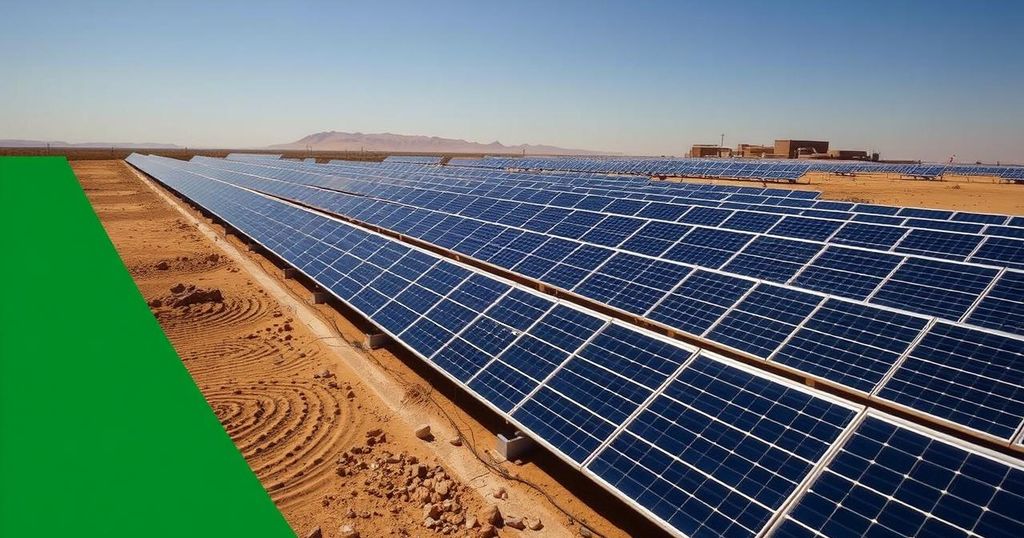Egypt has initiated a solar power project in Djibouti as part of its strategy to reduce the latter’s reliance on Ethiopia. The project, which will be funded by Egypt and aims to train Djiboutian technicians, is expected to expand up to 300 kilowatts. The agreement highlights the growing energy cooperation amid regional tensions in the Horn of Africa, particularly between Egypt and Ethiopia.
In a strategic move to bolster energy cooperation in the Horn of Africa, Egypt has initiated a new solar power project in Djibouti, aiming to provide alternative energy sources and decrease Djibouti’s dependence on Ethiopia, which has been characterized as a regional adversary. This ambitious project entails the establishment of a solar power facility in the arid regions of Djibouti, which has the potential for future expansion up to 300 kilowatts. Funding and operational training for Djiboutian technicians will be provided by Egypt, illustrating a significant investment in Djibouti’s energy sector. The agreement was virtually signed by Egypt’s Energy Minister Mahmoud Essmat and his Djiboutian counterpart, Yonis Ali Gued. The discussions primarily focused on economic aspirations, deliberately steering clear of the deeper political implications prevalent in the region. Alexis Mohamed, an advisor to President Ismail Omar Guelleh, emphasized that this collaboration would not only serve the interests of both nations but also aligns with President Guelleh’s vision for prioritization of energy issues for national development. The solar project is expected to be located near the village of Omar Jaggaa, marking a substantial step towards greater energy autonomy for Djibouti. Despite the seemingly bilateral nature of this agreement, observers note the broader regional significance, particularly regarding the ongoing tensions between Ethiopia and Egypt over Nile water rights and security dynamics in Somalia. Djibouti has historically maintained strong trade relations with Ethiopia, with the latter being a crucial supplier of goods and electricity. Ethiopia imports nearly all its goods through Djibouti and relies on it for more than 60% of its electricity supply. Furthermore, Djibouti’s increasing energy demands, driven by rising port activities, have prompted a shift towards renewable energy investments, including solar and geothermal options. The World Bank indicates that access to electricity in Djibouti is projected to increase from 65% to 72% as new infrastructure projects come online, further enhanced by the forthcoming solar farm.
Djibouti is situated strategically in the Horn of Africa, sharing close economic ties with Ethiopia, despite the political tensions that exist between Ethiopia and Egypt. The recent agreement for the solar power project symbolizes Egypt’s intent to not only enhance its bilateral relations with Djibouti but also to mitigate Djibouti’s dependence on Ethiopian electricity. Djibouti has been a significant consumer of Ethiopian electricity and has recognized the urgent need for sustainable energy solutions to support its economic development.
Egypt’s new solar power project in Djibouti reflects a strategic effort to strengthen energy partnerships in response to regional tensions with Ethiopia. By investing in renewable energy infrastructure, Egypt aims to reduce Djibouti’s reliance on Ethiopian power while promoting energy independence. This initiative aligns with Djibouti’s growing energy demands and marks an important step towards enhancing regional energy security.
Original Source: www.theeastafrican.co.ke






